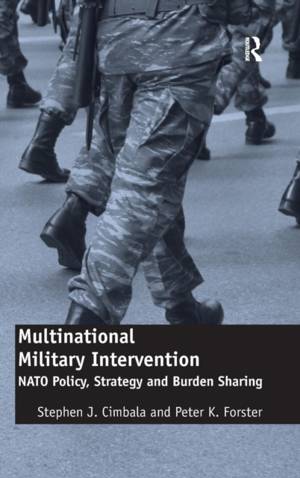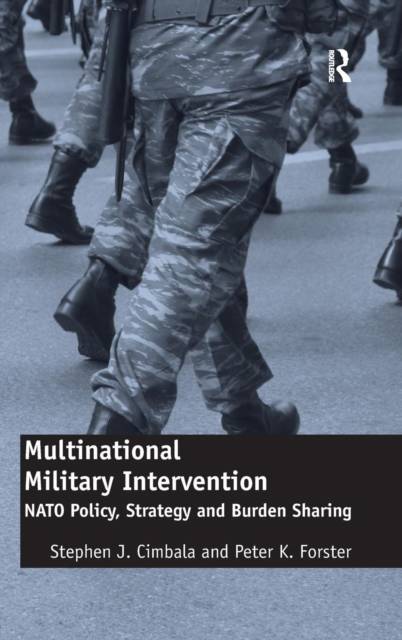
- Afhalen na 1 uur in een winkel met voorraad
- Gratis thuislevering in België vanaf € 30
- Ruim aanbod met 7 miljoen producten
- Afhalen na 1 uur in een winkel met voorraad
- Gratis thuislevering in België vanaf € 30
- Ruim aanbod met 7 miljoen producten
Zoeken
Multinational Military Intervention
NATO Policy, Strategy and Burden Sharing
Stephen J Cimbala, Peter K Forster
Hardcover | Engels
€ 274,95
+ 549 punten
Omschrijving
War, as Clausewitz reminds, is the most uncertain of human political and social activities. It also imposes burdens. In an alliance among states for the promotion of collective defense or security, such as the North Atlantic Treaty Organization (NATO), burdens have to be shared. This study looks at the experience of the United States and other member states of NATO in four situations of multinational military intervention - Lebanon, the Persian Gulf, the Balkans, and South Asia - and considers the implications of nuclear arms reductions and nonproliferation for the US and NATO. Each case study represents an important period in the distribution of power, interest, and values, amounting to more than a sequential consideration of incidents of military intervention and/or conflict prevention. These politico-military challenges include a major coalition war, a traditional peacekeeping operation, an exercise in peace enforcement, and a conflict that combines counter-insurgency and counter-terrorism with stability and security operations.
Specificaties
Betrokkenen
- Auteur(s):
- Uitgeverij:
Inhoud
- Aantal bladzijden:
- 254
- Taal:
- Engels
Eigenschappen
- Productcode (EAN):
- 9781409402282
- Verschijningsdatum:
- 23/04/2010
- Uitvoering:
- Hardcover
- Formaat:
- Genaaid
- Afmetingen:
- 156 mm x 234 mm
- Gewicht:
- 535 g

Alleen bij Standaard Boekhandel
+ 549 punten op je klantenkaart van Standaard Boekhandel
Beoordelingen
We publiceren alleen reviews die voldoen aan de voorwaarden voor reviews. Bekijk onze voorwaarden voor reviews.











